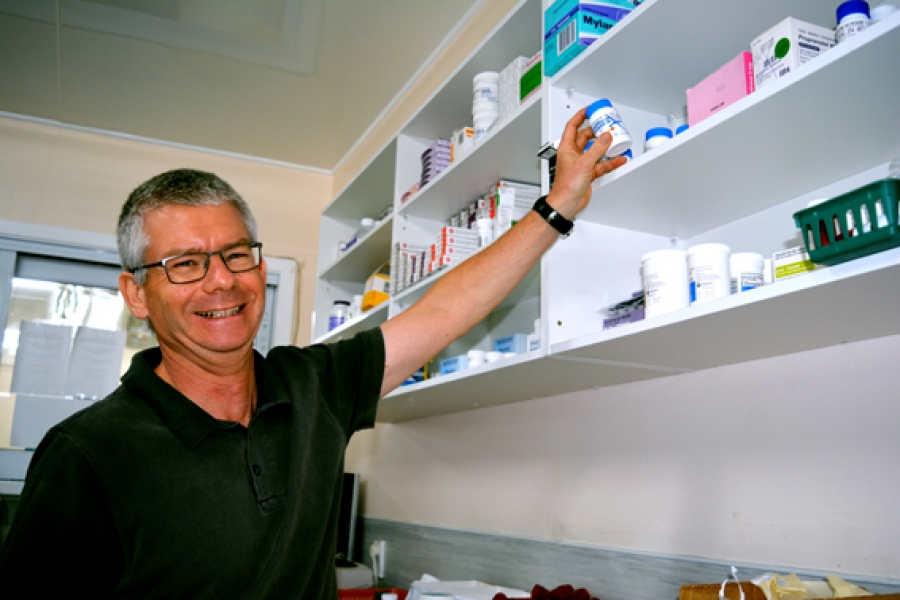Antibiotics: Not all fun and games
Friday 18 November 2022 | Written by Supplied | Published in Health, National

Cook Islands Ministry of Health chief pharmacist, Andrew Orange. 16080910
Te Marae Ora (TMO) pharmacy staff were busy during the Cook Islands Games – not so much with playing sport, but asking people about antibiotics.
The survey was conducted in October in lead up to the World Antimicrobial Awareness Week (WAAW), which is held every year from November 18-24.
The pharmacy staff surveyed 434 people at different places around Rarotonga, to find out what people already knew about antibiotics so that key messages could be planned for WAAW.
TMO chief pharmacist Andrew Orange said: “Survey results suggest that people don’t fully understand what antibiotics do and how they work.”
“For example, a lot of people answered that antibiotics are used to treat infections caused by bacteria, viruses, and fungi. But antibiotics only treat infections caused by bacteria, like wound infections or pneumonia.”
Nearly half the people surveyed thought antibiotics helped to treat the common cold.
Orange explained: “Antibiotics don’t work for infections caused by viruses, like the common cold, influenza, or Covid. They won’t make you get better any faster.”
Two thirds of people surveyed knew that bacteria can become resistant to antibiotics. When that happens, antibiotics stop working and the infection might get worse in spite of treatment. Antibiotic resistance is caused by using the wrong antibiotic, overusing antibiotics, or not using a big enough antibiotic dose.
“We need to use antibiotics wisely to make sure they keep working,” Orange said. “Different antibiotics work on different bacteria and the right antibiotic needs to be taken for the right bacterial infection. Your doctor or nurse practitioner is the best person to decide which antibiotic is best to treat your infection.”
Orange also noted that any leftover antibiotics shouldn’t be kept for future use or given to someone else to take. “Antibiotics lose their effectiveness over time, and the next infection that needs treating might be caused by different bacteria, so your leftover antibiotics might not work or could cause bacteria to become resistant.”
“There’s also a danger that antibiotics prescribed for you might cause an allergic reaction in someone else, or interact with other medicines they’re taking. So it really is best if any leftovers are taken back to the pharmacy.”
- TMO Pharmacy













































